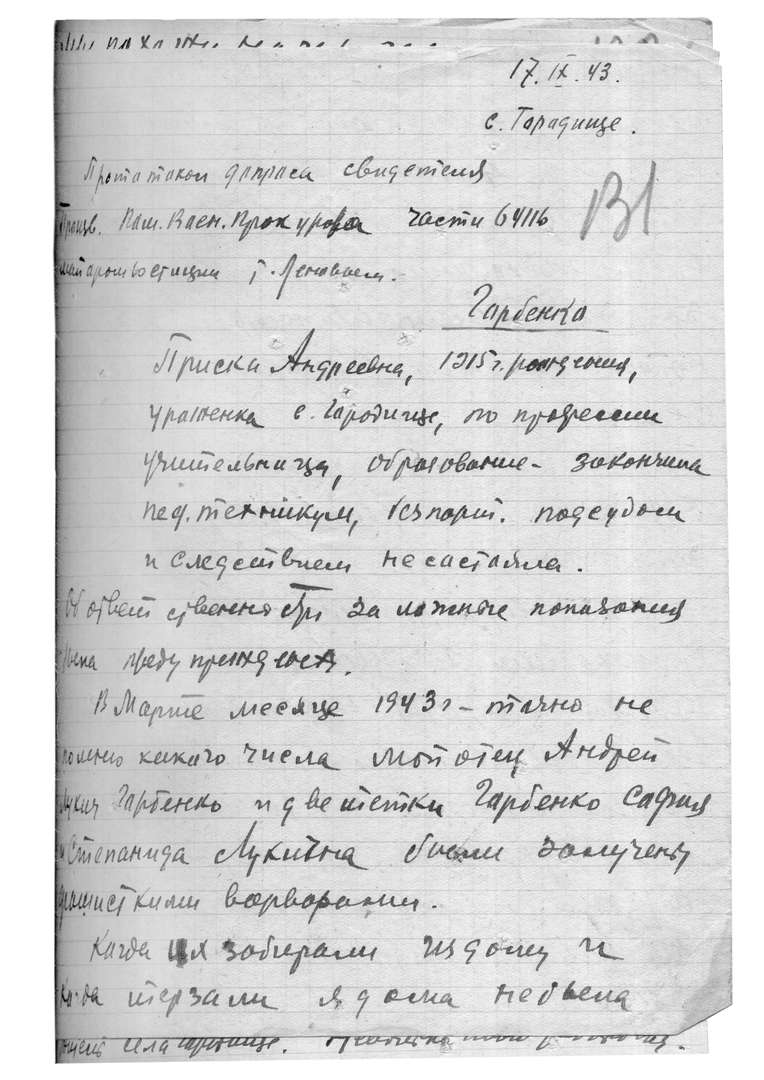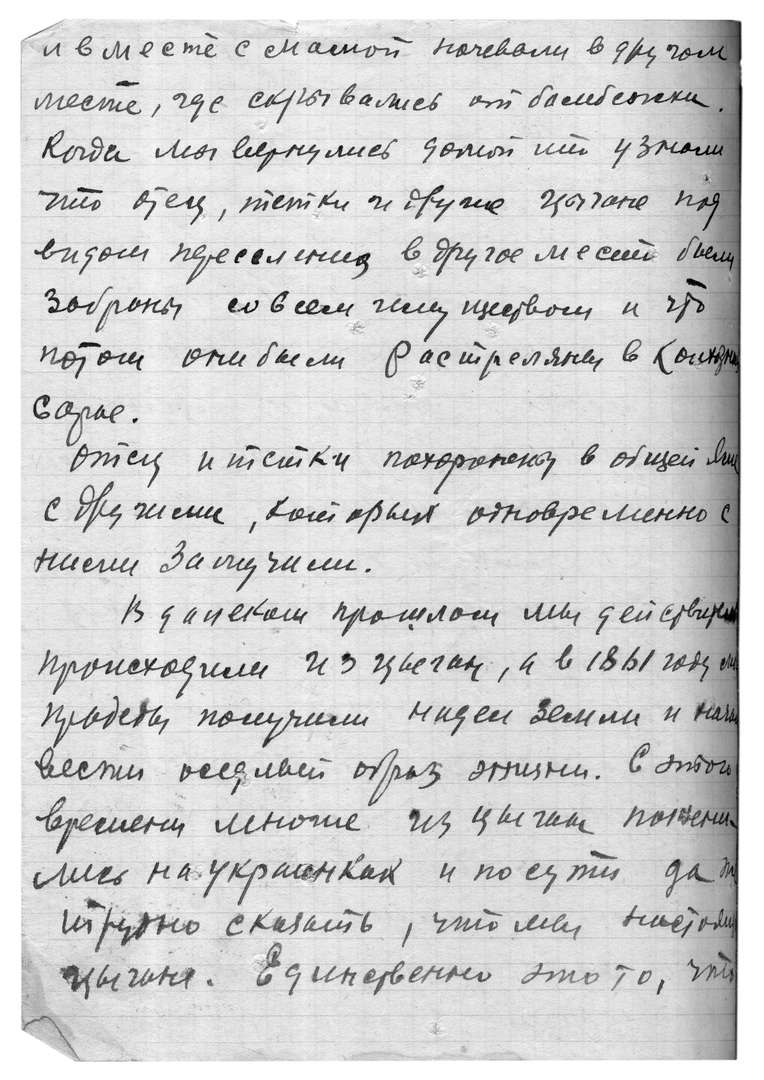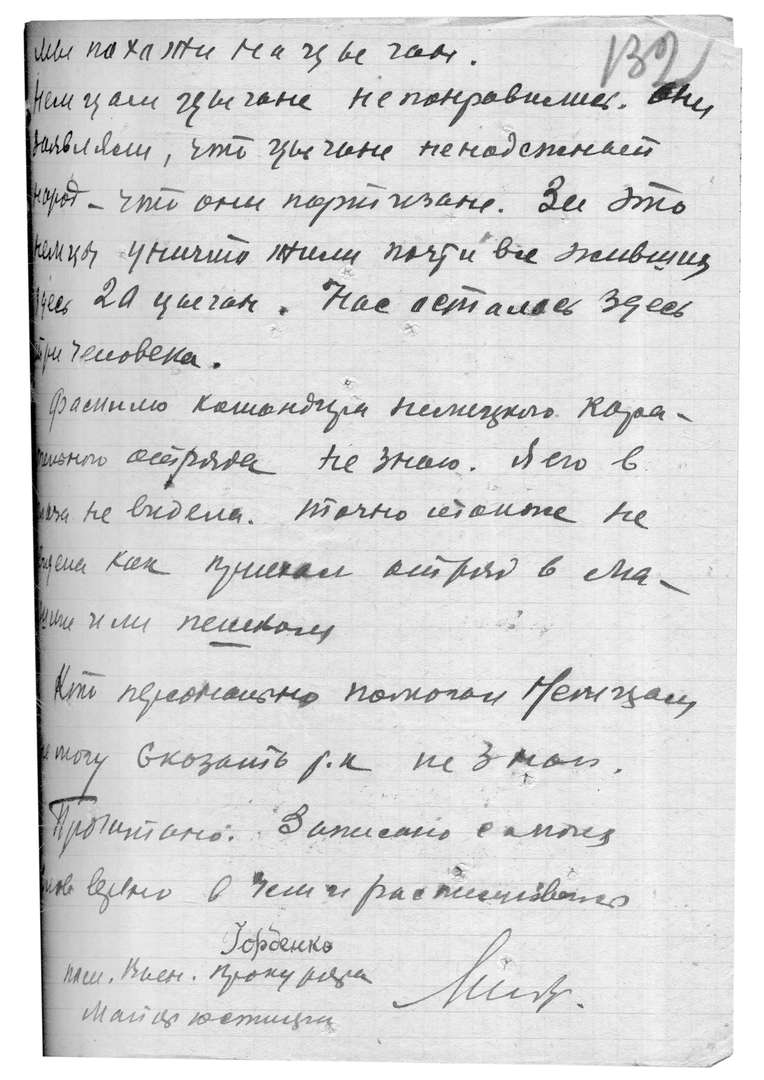17.IX.1943
с.[ело] Городище.
Протокол допроса свидетеля
Произв.[ел] Пом.[ощник] Воен.[ного] Прокурора части 64116
майором юстиции т.[оварищем] Леновым
Горбенко
Приска Андреевна, 1915 г. рождения,
уроженка с. Городище, по профессии
учительница, образование – закончила
пед[агогический]. техникум, беспарт.[ийная], под судом
и следствием не состояла
Об ответственности за ложные показания была предупреждена.
В марте месяце 1943 – точно не помню какого числа – мой отец Андрей Лукич Горбенко и две тетки Горбенко София и Степанида Лукична были замучены фашистскими варварами.
Когда их забирали из дому и когда терзали, я дома не была, и [мы] вместе с мамой ночевали в другом месте, где скрывались от бомбежки. Когда мы вернулись домой то узнали что отец, тетки и другие цыгане под видом переселения в другое место были забраны со всем имуществом и что потом они были рас[с]треляны в колхозном сарае.
Отец и тетки похоронены в общей яме с другими, которых одновременно с ними замучили.
В далеком прошлом мы действительно происходили из цыган, а в 1861 году мои предки получили надел земли и начали вести оседлый образ жизни. С этого времени многие из цыган поженились на украинках и по сути даже трудно сказать, что мы настоящие цыгане. Единственное это то, что мы похожи на цыган.
Немцам цыгане не понравились. Они заявляли, что цыгане ненадежный народ, что они партизаны. За это немцы уничтожили почти все жившие здесь 20 цыган. Нас осталось здесь три человека.
Фамилию командира немецкого карательного отряда не знаю. Я его в глаза не видела. Точно так же не знаю, как приезжал отряд, в машине или пешком.
Кто персонально помогал немцам, не могу сказать, так как не знаю.
Прочитано: Записано с моих слов верно, в чем и расписываюсь.
Горбенко
Пом[ощник]. Воен[ного]. Прокурора
майор юстиции
[подпись] Ленов











